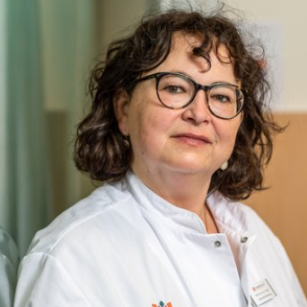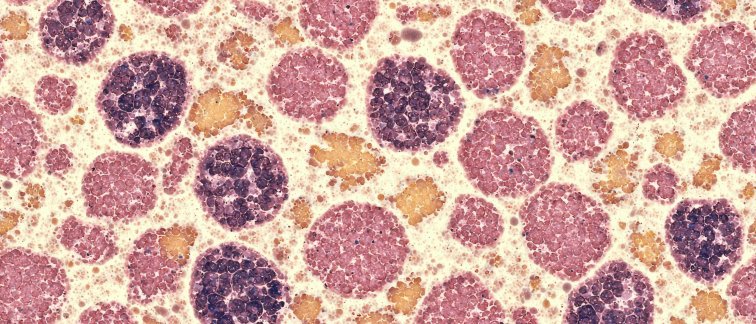“Shorter vein-to-vein time can lead to improved patient outcomes and remains an important unmet need in CAR-T therapy,” said Marie José Kersten, MD, ATALANTA-1 Principal Investigator and Professor of Hematology at the Department of Hematology at the Amsterdam University Medical Center. “I am impressed by the latest data on GLPG5101, which demonstrate a promising efficacy and safety profile. With a median vein-to-vein time of just seven days, GLGP5101 offers speed and scheduling flexibility comparable to off-the-shelf therapies.”
“CAR-T therapies are highly personalized treatments that currently undergo a time-intensive manufacturing process taking multiple weeks to months. For many patients with rapidly progressing cancers, every day counts, and treatment delays can be detrimental,” said Jeevan Shetty, MD, Head of Clinical Development Oncology at Galapagos. “We are steadfast in our commitment to bring innovation to cell therapies to address the most significant medical challenges. Our latest data at ASH strongly support the feasibility of our innovative decentralized cell therapy manufacturing platform in delivering fresh, fit cells with a median vein-to-vein time of just seven days, driving positive patient outcomes.”

The new ATALANTA-1 data
The ongoing ATALANTA-1 study included updated data on patients with mantle cell lymphoma (MCL), marginal zone lymphoma (MZL), follicular lymphoma (FL), and diffuse large B-cell lymphoma (DLBCL). As of the April 25, 2024, data cut-off, 49 patients received CD19 CAR T-cell therapy infusion, and safety and efficacy results were available for 45 patients and 42 patients, respectively.
High objective response rates (ORR) and complete response rates (CRR) were observed in the pooled Phase 1 and Phase 2 efficacy analysis set, split by indication:
- In patients with MCL, all 8 of 8 efficacy-evaluable patients responded to treatment (ORR and CRR 100%).
- In patients with MZL, FL, objective and complete responses were observed in 20 of 21 efficacy-evaluable patients (ORR and CRR 95%).
- In patients with DLBCL, 9 of 13 efficacy-evaluable patients responded to treatment (ORR 69%), with 7 patients achieving a complete response (CRR 54%). Of the 7 patients with DLBCL who received the higher dose, 6 responded to treatment (ORR 86%) with 5 achieving a complete response (CRR 71%).
Of the 15 minimal residual disease (MRD)-evaluable patients with a complete response, 12 patients (80%) achieved MRD negativity and remained in complete response at data cut-off.
The median study follow-up was 3.3 months for FL and DLBCL with a range of 0.9-21.2 months, and 4.4 months for MCL with a range of 1-24.4 months.
GLPG5101 showed an encouraging safety profile, with the majority of Grade ≥ 3 events being hematological. One case of CRS Grade 3 was observed in Phase 1 and one case of ICANS Grade 3 was observed in Phase 2.
96% of patients (47 of 49) received an infusion with fresh, fit, stem-like early memory CD19 CAR T-cell therapy, with 91.5% (43 of 47) achieving a vein-to-vein time of seven days, thereby avoiding cryopreservation, and eliminating the need for bridging therapy.
Strong and consistent in vivo CAR-T expansion levels and products consisting of stem-like, early memory phenotype T cells were observed in all doses tested.
About the ATALANTA-1 study (EudraCT 2021-003272-13)
ATALANTA-1 is an ongoing Phase 1/2, open-label, multicenter study to evaluate the safety, efficacy and feasibility of decentralized manufactured GLPG5101, a CD19 CAR-T product candidate, in patients with relapsed/refractory non-Hodgkin lymphoma (R/R NHL). GLPG5101 is a second generation anti-CD19/4-1BB CAR-T product candidate, administered as a single fixed intravenous dose. The primary objective of the Phase 1 part of the study is to evaluate the safety and preliminary efficacy to determine the recommended dose for the Phase 2 part of the study. Secondary objectives include assessment of efficacy and feasibility of decentralized manufacturing of GLPG5101. The dose levels that were evaluated in Phase 1 are 50×106(DL1), 110×106(DL2) and 250×106(DL3) CAR+ viable T cells. The primary objective of the Phase 2 part of the study is to evaluate the objective response rate (ORR), while the secondary objectives include complete response rate (CRR), duration of response, progression free survival, overall survival, safety, pharmacokinetic profile, and the feasibility of decentralized manufacturing. Each enrolled patient will be followed for 24 months.

